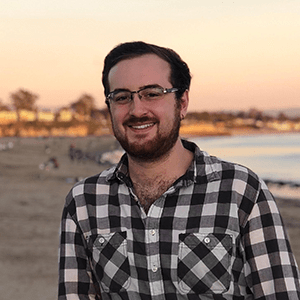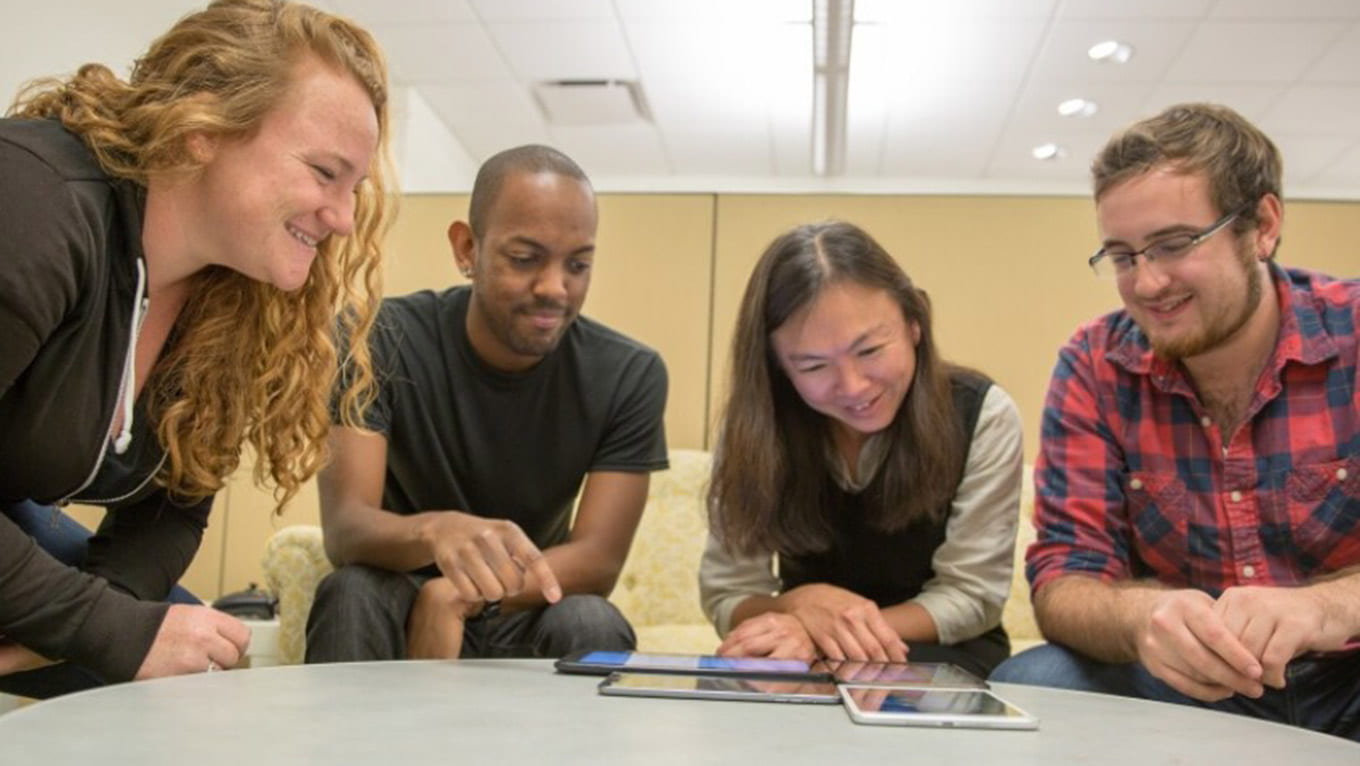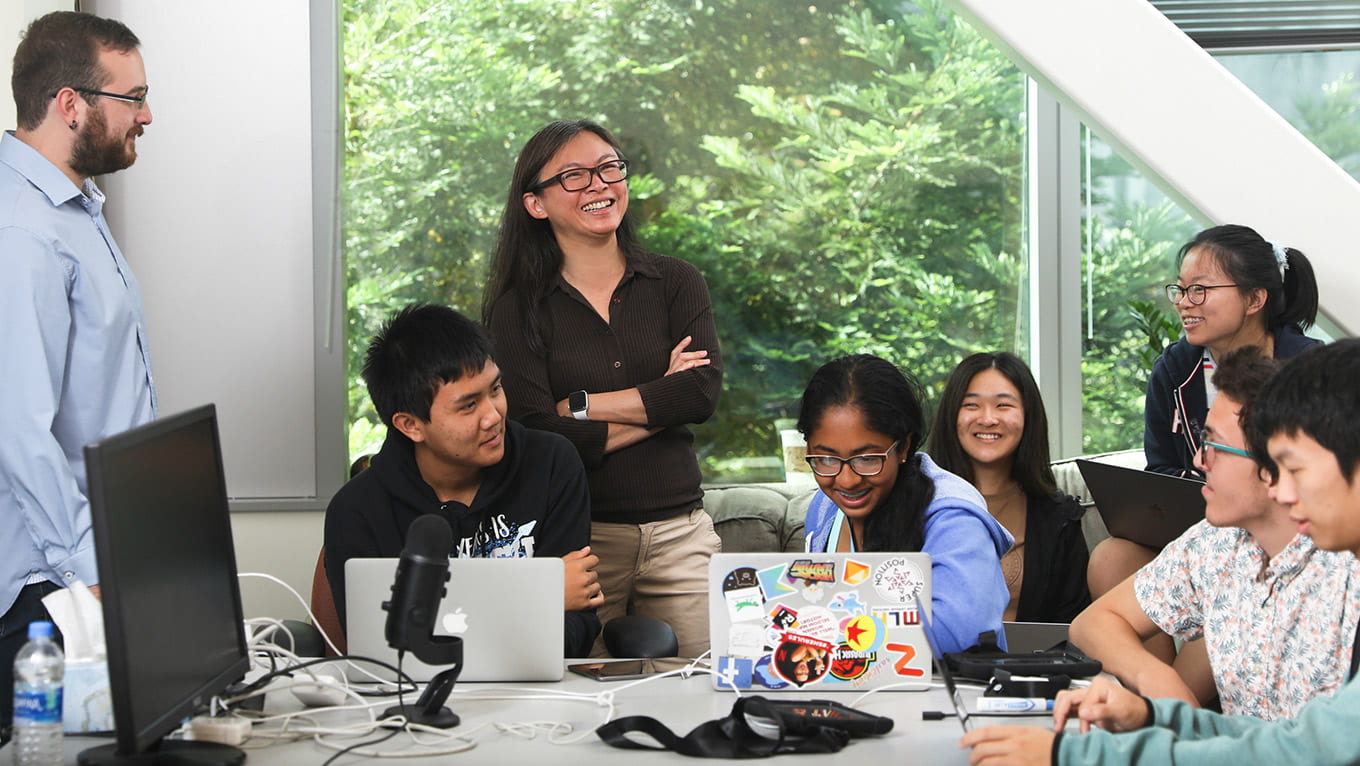Jared Duval, computational media Ph.D. candidate, is this year’s recipient of the prestigious Jack Baskin and Peggy Downes-Baskin Fellowship—a fellowship established to recognize and support outstanding Ph.D. students at the Baskin School of Engineering.
The fellowship will allow Duval to concentrate fully on his research, release two serious games for rehabilitation therapy applications he’s developed, and complete his dissertation.
Duval’s research incorporates the fields of medicine, technology, and art to create serious games for rehabilitation therapy purposes.
“What I like about therapy games is that you get to blend creativity with the technical side of things for a medical purpose, which is to improve the health outcomes for people in a fun way.”
His passion for helping others with developmental and physical disabilities began from an early age when he spent time volunteering at the center his mom worked at, playing games with members and helping them with skill-building activities.

His dad later became a shared living provider, welcoming Timmy, an adult living with cerebral palsy, into their home for 24/7 care. As Duval would often assist his dad with Timmy’s care, his interest and desire to help people with developmental disabilities grew. He became a respite nurse while working towards B.S. degrees in computer science and information technology at Western New England University in Springfield, Massachusetts.
Potential unlocked at Baskin Engineering
With healthcare experience from being a respite nurse, technical experience from his two undergraduate degrees, and arts experience from being a show choir performer, Duval wanted to find a way to mix those three areas of expertise and interests into a graduate degree.
He found that computational media was a perfect fit for him because it would allow him to “bridge the arts and humanities with computer science and engineering,” said Duval.
One visit to campus was all it took for Duval to fall in love with the atmosphere at UC Santa Cruz as well as the computational media program at the Baskin School of Engineering.
“I jived really well with my advisor, Sri Kurniawan, and I felt like Baskin Engineering was a perfect match for me,” stated Duval.
Duval, who is now co-advised by professors and leading researchers Sri Kurniawan and Katherine Isbister, said he is very fortunate to have the unwavering support and expertise of his advisers for the research he is doing.
Serious games for therapy
Duval’s research is making important contributions to the field of rehabilitation therapy. At this time, he has developed three serious games for therapy applications.
The first game, which has been a five-year long project in the making and Duval’s initial, large-scale research project, is called Spokelt. Spokelt is a speech therapy game for children with cleft speech. Children who were born with either a cleft lip or cleft palate will need to undergo speech therapy after they get surgery to correct the birth defect to unlearn the “developed compensatory speech attributes from their cleft speech,” said Duval.
Spokelt is an easily accessible, effective, at-home speech therapy application, and allows speech therapists to remotely monitor their patient’s progress through the app. Duval has partnered with Smile Train towards a global release in numerous languages.
The other developed but not yet released application Duval has been working on is called Spellcasters. Spellcasters is a virtual reality game for stroke rehabilitation, created in collaboration with physical and occupational therapists. Duval explained that originally Spellcasters was an entertainment game developed by UCSC Silicon Valley Extension MS students. Duval noticed the physical component of the game had the potential to help stroke survivors complete their upper-limb rehabilitation exercises.
“It is now a therapy tool with accessible, simplified game rules, and the curriculum can be customized by physical therapists and occupational therapists based on each individual stroke survivor’s needs,” Duval said.
The third serious game, Cirkus, is in the working prototype stage of development. Duval is collaborating with Uppsala University in Sweden to create a circus-themed application that will help improve the motor skills of children with sensory-based motor disorders (SBMD), a medical diagnosis recognized in Sweden, but not the U.S. at this time.
“The application is less of a game and more of a play structure. You can use the technology to create lots of different games,” Duval said.
Machine learning applications are used to monitor and track users’ movement while the application is running. One of the benefits of this application is that it limits screen time for users by mixing technology with reality.
What the fellowship will make possible
With the Baskin Fellowship, Duval will have the funding and extra time to advance both Spokelt and Spellcasters from the development phase to release, a long and involved process.
“You’d be surprised how much goes into releasing a game to the app store. There is the need for FDA approval since these games are for therapy use, and then there’s the long legal process,” explained Duval.
He’s excited to be able to dedicate all his time back to his research, after teaching four courses over the past year where he juggled developing course curriculum and teaching remotely in addition to conducting research of his own.
On being selected for the fellowship, Duval said, “It’s very humbling. I’m super excited and feeling motivated to strive for excellence and impact.”




